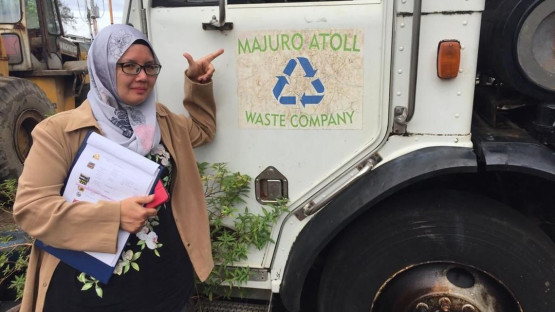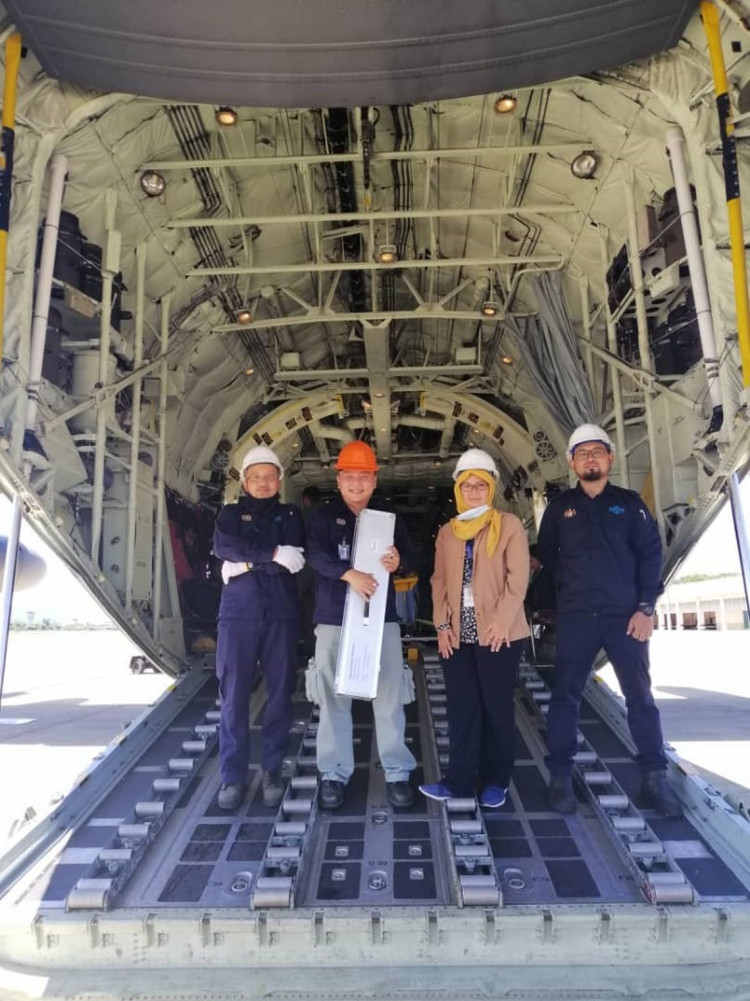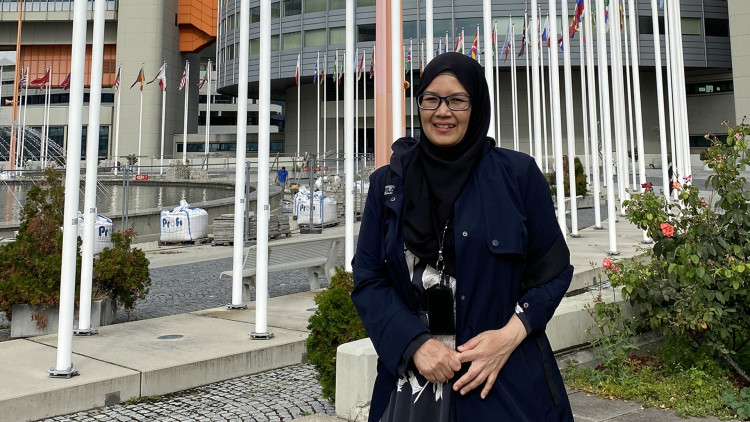The IAEA profiles employees to provide insight into the variety of career paths that support the Agency’s mission of Atoms for Peace and Development and to inspire and encourage readers, particularly women, to pursue careers in STEM (science, technology, engineering and mathematics) or STEM-adjacent fields. Read more profiles of women at the IAEA.
Nora Zakaria comes from a humble background. At eight years old, in her home country of Malaysia, she would wake up before dawn to go rubber tapping to harvest latex with her mother and sister. With mosquito repellent coils placed on their heads, she complained about the tedious work to which her mother responded, “Study hard if you do not want to work like this.”
Zakaria took her mother’s advice to heart and prioritized her studies. At university, although she planned to study chemistry, she switched her major when the Government of Malaysia offered her a full scholarship to study chemical engineering in the United Kingdom.
Chemical engineering was not her first choice, but she took the opportunity, which opened the door to the world of nuclear energy and radioactive waste management. Her studies set her on course for a career that would eventually lead to her current role as Head of the Waste Technology Section at the IAEA.
Back then, there was minimal exposure to all the educational disciplines in the science, technology, engineering and Mathematics (STEM) fields, Zakaria explained. Today she is pleased to see that young women have more educational and professional prospects in STEM.
“With the advancement of communication and information technology, younger generations are exposed to vast possibilities. The choices nowadays are more diverse than just between the art stream and the science stream, and new, nonconventional study and career options are on the rise. In my experience, students with a genuine passion for science are out there, and together we should continue to nurture this interest,” Zakaria said.





